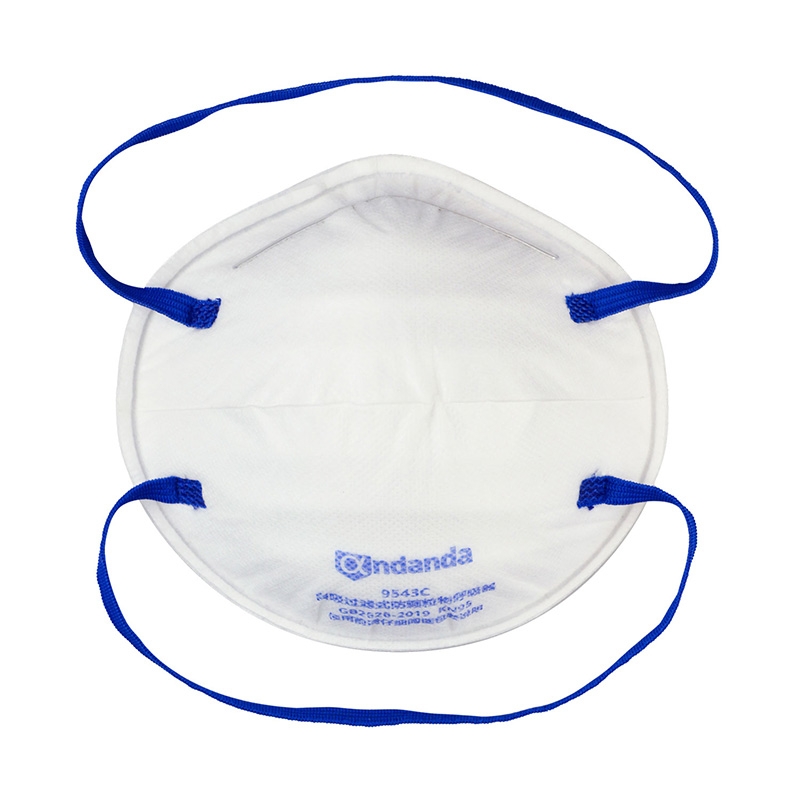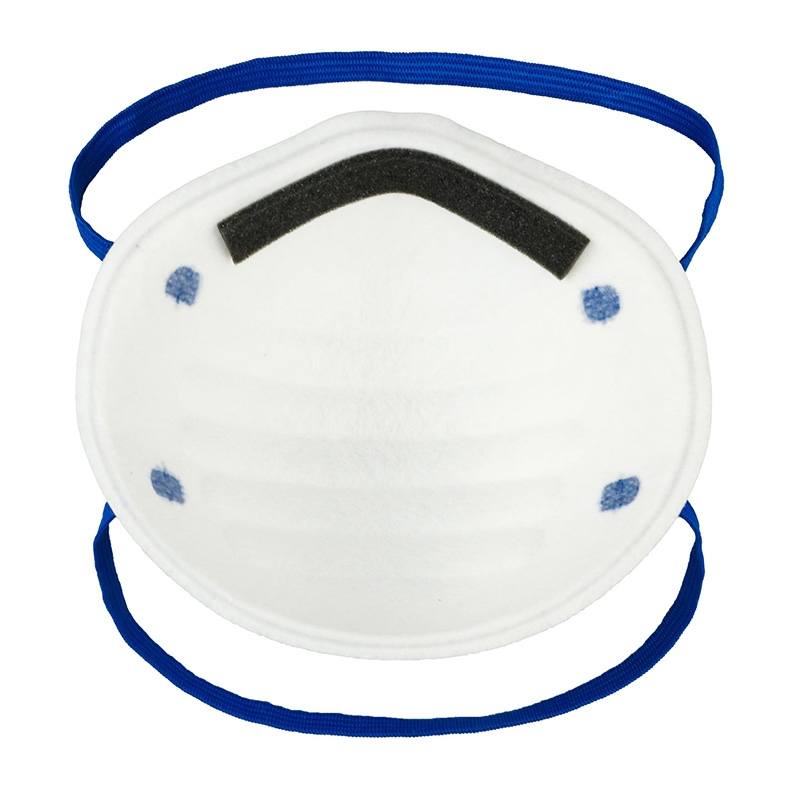N95 Respirators in Healthcare and Beyond
N95 respirators are pivotal in safeguarding health, designed to filter at least 95% of airborne particles. Their significance extends across healthcare to industries facing exposure to dust from grinding, sawing, and processing of materials like coal and metal, as well as environments with pollen and other allergens. These masks also protect against liquid particles from sprays without oily aerosols. In the context of Andanda, the application of N95 respirators takes on added importance, addressing specific health and safety needs within and beyond healthcare settings. This introduction sets the stage to explore Andanda’s integration of N95 technology, highlighting its crucial role in protecting professionals and the public from many airborne hazards.

Understanding N95 Respirators
Definition and Characteristics
N95 respirators are a class of protective masks designed with advanced filtration technology to block at least 95% of airborne particles. These masks are distinguished by their 3D cutting, ensuring a snug fit that covers the nose and mouth tightly, minimizing the entry of harmful particles. They feature low respiratory resistance, making breathing comfortable while being tender, safe, and odorless. The ear ropes of N95 masks are flexible and elastic, providing a tension-free fit, essential for prolonged wear.
Advanced Filtration Technology
The core of N95 respirators lies in their filtration efficiency. They are engineered to filter non-oily particles with an efficiency of ≥95%, offering superior protection against dust, pollen, and other airborne contaminants. A built-in sponge strip is included to ensure the mask fits tightly across the bridge of the nose, enhancing the overall seal and effectiveness.
Comparison with Other Masks
Unlike standard surgical masks or cloth face coverings, N95 respirators offer a higher level of protection due to their ability to filter out smaller particles. They are designed for repeated use, making them a safe and hygienic option for continuous protection. The distinction between N95 masks and other respirators lies in their specific design to balance safety, comfort, and filtration efficiency.

N95 Respirators in Andanda’s Healthcare
Protecting Healthcare Workers
In Andanda, N95 respirators play a crucial role in safeguarding healthcare professionals against airborne diseases, especially in high-risk environments like hospitals and clinics. The tight-fitting design and advanced filtration make N95 masks indispensable in preventing the inhalation of harmful pathogens during medical procedures.
Addressing Challenges
Despite their benefits, deploying N95 respirators in Andanda’s healthcare system faces challenges, including supply shortages and distribution issues. Innovative solutions such as local production initiatives, strategic stockpiling, and re-use strategies have been adopted to overcome these hurdles. These measures aim to ensure a steady supply of N95 masks, maintaining the high level of protection healthcare workers need.
Beyond Healthcare: Other Uses of N95 in Andanda
Industrial Applications
In Andanda, N95 respirators extend their utility beyond the healthcare sector, serving as essential protective gear in industries such as construction and manufacturing. Workers exposed to dust, metal particles, and hazardous airborne substances rely on N95 masks for protection against occupational health risks. These industries benefit from the respirators’ ability to filter out harmful particles, ensuring a safer working environment.
Protection for the Public
During periods of high pollution or wildfires, the general populace in Andanda turns to N95 respirators for protection against poor air quality. The masks provide a critical barrier against smoke and pollutants, highlighting their importance for professional use and public health and safety.
Government Initiatives
Andanda’s government has implemented policies to manage the distribution of N95 respirators and raise public awareness about their benefits. Initiatives include stockpiling masks for emergency situations, conducting educational campaigns on proper mask usage, and ensuring the availability of N95s during environmental crises.
Advancements and Innovations
Technological Developments
Recent advancements in N95 technology within Andanda have focused on enhancing the mask’s filtration efficiency, comfort, and reusability. Innovations include the development of more breathable materials, as well as features that allow for a better fit and seal against the face, reducing the risk of exposure to airborne particles.
Recycling and Reusability
Andanda has also seen innovative approaches to extending the life of N95 respirators, including methods for safely decontaminating and reusing masks. These practices not only address supply constraints but also contribute to environmental sustainability by reducing medical waste.
Future Trends
Looking forward, Andanda is poised to witness trends in respiratory protection that emphasize smart technology, such as masks equipped with sensors to monitor air quality and filter integrity. These advancements are expected to offer new levels of safety and convenience, reshaping the landscape of respiratory protection.
Challenges and Opportunities
Supply Chain Challenges
Ensuring a consistent supply of N95 respirators in Andanda presents logistical, financial, and technical challenges. Issues such as global demand surges, manufacturing bottlenecks, and distribution inefficiencies have underscored the need for robust supply chain strategies to maintain adequate stockpiles of essential protective gear.
Enhancing Accessibility and Effectiveness
Opportunities to increase the accessibility and effectiveness of Andada N95 masks include promoting public-private partnerships to increase production capacity. and investing in research and development to innovate mask designs and filtration technologies. Additionally, initiatives aimed at educating the public on proper mask use and care could enhance the overall public health impact of N95 respirators.
While N95 respirators are an important part of Andanda’s response to health and environmental challenges. But continued efforts in innovation, supply chain management and public policy are critical to maximizing its benefits. Addressing current challenges and capitalizing on growth opportunities will ensure Andanda remains at the forefront of respiratory protection. Protecting its citizens in healthcare settings and beyond.
Strengthen Andanda’s Airborne Defense with N95 Innovation
The crucial role of N95 respirators in safeguarding individuals within healthcare settings and beyond in Andanda is undeniable. These masks have proven to be indispensable in providing superior protection against countless airborne particles. Not only for health care workers, but also for various industries and the public, especially during times of environmental hazards. This is despite supply, distribution and innovation challenges. Andanda has the opportunity to lead the advancement and accessibility of N95 technology. Government policies and public-private partnerships have begun to address these challenges. Focus on sustainability and public awareness to ensure everyone has access to necessary protections. As Andanda continues to grapple with these challenges. The development of the N95 respirator remains a beacon of hope and a symbol of commitment to public health and safety. The journey ahead includes embracing innovation, overcoming logistical barriers, and improving the effectiveness of respiratory protection. This will undoubtedly enhance Chubb’s ability to withstand airborne threats in the future.

